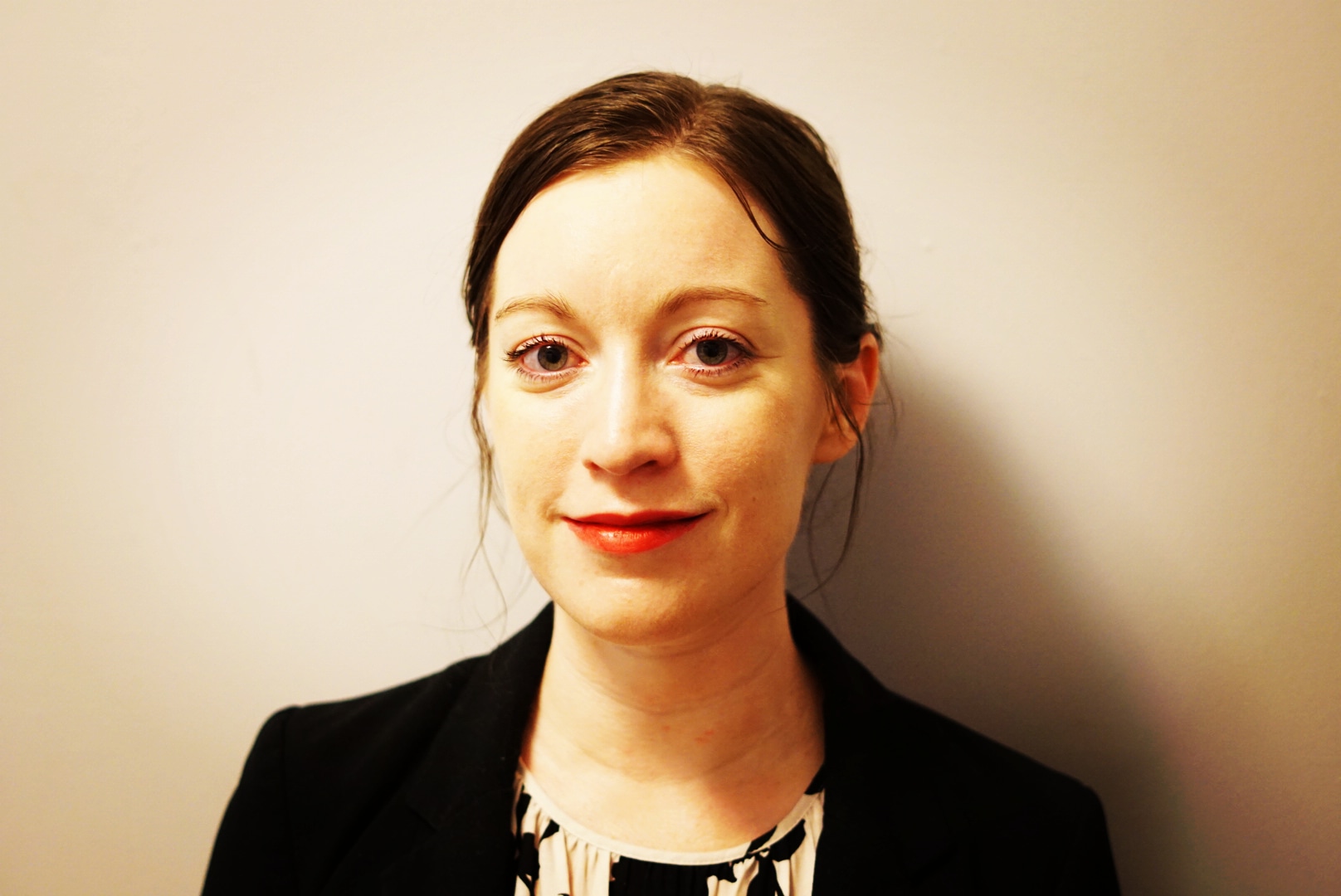
Profit and prosper with the best of Kiplinger's advice on investing, taxes, retirement, personal finance and much more. Delivered daily. Enter your email in the box and click Sign Me Up.
You are now subscribed
Your newsletter sign-up was successful
Want to add more newsletters?

Delivered daily
Kiplinger Today
Profit and prosper with the best of Kiplinger's advice on investing, taxes, retirement, personal finance and much more delivered daily. Smart money moves start here.

Sent five days a week
Kiplinger A Step Ahead
Get practical help to make better financial decisions in your everyday life, from spending to savings on top deals.

Delivered daily
Kiplinger Closing Bell
Get today's biggest financial and investing headlines delivered to your inbox every day the U.S. stock market is open.

Sent twice a week
Kiplinger Adviser Intel
Financial pros across the country share best practices and fresh tactics to preserve and grow your wealth.

Delivered weekly
Kiplinger Tax Tips
Trim your federal and state tax bills with practical tax-planning and tax-cutting strategies.

Sent twice a week
Kiplinger Retirement Tips
Your twice-a-week guide to planning and enjoying a financially secure and richly rewarding retirement

Sent bimonthly.
Kiplinger Adviser Angle
Insights for advisers, wealth managers and other financial professionals.

Sent twice a week
Kiplinger Investing Weekly
Your twice-a-week roundup of promising stocks, funds, companies and industries you should consider, ones you should avoid, and why.

Sent weekly for six weeks
Kiplinger Invest for Retirement
Your step-by-step six-part series on how to invest for retirement, from devising a successful strategy to exactly which investments to choose.
Insurance is made for the unexpected in life, but you may not realize you don’t have enough liability coverage until it's too late, especially the situations you never thought to anticipate.
The neighbor’s child falls from your trampoline and breaks his arm, requiring extensive surgery. Your Airbnb guest slips on your stairs. Your nonprofit gets sued, or that restaurant you didn’t like hires a lawyer.
People are often surprised by circumstances that can lead to their personal liability exposure. And they sometimes also wrongly assume that the liability coverage on their home insurance or auto insurance would be enough to cover their expenses if accidents happen or they get sued.
From just $107.88 $24.99 for Kiplinger Personal Finance
Become a smarter, better informed investor. Subscribe from just $107.88 $24.99, plus get up to 4 Special Issues

Sign up for Kiplinger’s Free Newsletters
Profit and prosper with the best of expert advice on investing, taxes, retirement, personal finance and more - straight to your e-mail.
Profit and prosper with the best of expert advice - straight to your e-mail.
If you're retired or close to it, shielding your assets from these risks is more important than ever. These are the assets that are supposed to sustain you throughout your golden years, so you don't want to risk losing them in a lawsuits.
Umbrella insurance is one of the easiest and most affordable tools available to make sure your dream retirement isn't spoiled by a single accident. Here's what it is, how it works and everything else retirees should know about the often overlooked type of insurance.
What is umbrella insurance?
One option for liability worries is umbrella insurance, which is extra liability coverage on top of what's already included in your home or car insurance policy.
Umbrella policies are relatively cheap, with a typical annual cost of about $150 to $300 for each $1 million of coverage. The coverage kicks in after home or auto liability limits are exhausted.
You typically buy a separate umbrella policy from your current insurance carrier. Standalone umbrella policies are not common, but you may find one by shopping around.
Umbrella insurance protects your financial wellbeing
People tend to understand insurance when it comes to something tangible, such as their car, but your financial wellbeing is just as important to protect.
If you were found at fault in an accident where the damage and injuries exceeded the maximum payout your car insurance's liability coverage will pay, you're on the hook for the rest.
If an Airbnb guest sues you after getting injured in your home and the lawsuit is worth more than your home insurance's liability limit, you'll have to pay up.
That could mean wiping out your emergency savings, tapping into your home equity or other drastic financial moves to cover the difference in what's owed. That's where umbrella insurance comes in.
How to get the right amount of umbrella insurance
As mentioned earlier, umbrella insurance is rarely sold as a standalone policy. You'll typically add it on to your home or car insurance. But, how much umbrella insurance do you need?
Aim for total coverage (including your existing liability coverage) worth at least as much as your net worth. That includes your home equity, retirement accounts and any other savings or assets you own. If it could be taken in a lawsuit, you want to include it in your calculations here.
If the liability limits on your existing home and car insurance are enough to cover that or could be bumped a little higher to make up the difference, you probably don't need umbrella insurance. But, if your net worth is higher than those policies are able to cover, look into adding on this important coverage.
To see if you can save by just raising the liability coverage limit on your insurance, use the Bankrate-powered tool below to compare quotes on car insurance with higher liability limits:
Usually bundling an umbrella policy with your other coverage will save you money on premiums, but be sure you coordinate all your coverage correctly.
Insurers often ask you to max out your existing liability coverage, or at least bump it up to a specified amount before your umbrella insurance kicks in.
Say your insurer recommends you have $300,000 worth of liability coverage on your home and auto, but your current policies only have a $100,000 limit.
If you then purchase a $1 million umbrella policy on top of that, your insurer might only pay out a maximum of $700,000, because the other $300,000 was supposed to be covered by your home or auto policy.
If you had the recommended $300,000 coverage on your other policies, you wouldn’t have come up short.
Umbrella insurance is especially important for retirees
At the start of the career, your net worth is probably low enough to fall within the range of standard liability coverage. But, as you near retirement, you've likely paid off your home (or are close to it) and amassed a healthy retirement fund.
Umbrella insurance might seem like an unnecessary added expense. But, a single lawsuit could take a significant chunk out of the net worth you've worked so hard to build over the last couple of decades.
So, if you haven't looked into it yet, reach out to your insurer to see about adding it on. For a few bucks a month, you can make sure your golden years stay golden.
Get more insurance tips and other personal finance insights straight to your inbox. Subscribe to our daily newsletter, A Step Ahead.
Related content
Profit and prosper with the best of Kiplinger's advice on investing, taxes, retirement, personal finance and much more. Delivered daily. Enter your email in the box and click Sign Me Up.

Rachael Green is a personal finance eCommerce writer specializing in insurance, travel, and credit cards. Before joining Kiplinger in 2025, she wrote blogs and whitepapers for financial advisors and reported on everything from the latest business news and investing trends to the best shopping deals. Her bylines have appeared in Benzinga, CBS News, Travel + Leisure, Bustle, and numerous other publications. A former digital nomad, Rachael lived in Lund, Vienna, and New York before settling down in Atlanta. She’s eager to share her tips for finding the best travel deals and navigating the logistics of managing money while living abroad. When she’s not researching the latest insurance trends or sharing the best credit card reward hacks, Rachael can be found traveling or working in her garden.
- Mary KaneAssociate Editor, Kiplinger's Retirement Report
-
 Betting on Super Bowl 2026? New IRS Tax Changes Could Cost You
Betting on Super Bowl 2026? New IRS Tax Changes Could Cost YouTaxable Income When Super Bowl LX hype fades, some fans may be surprised to learn that sports betting tax rules have shifted.
-
 How Much It Costs to Host a Super Bowl Party in 2026
How Much It Costs to Host a Super Bowl Party in 2026Hosting a Super Bowl party in 2026 could cost you. Here's a breakdown of food, drink and entertainment costs — plus ways to save.
-
 3 Reasons to Use a 5-Year CD As You Approach Retirement
3 Reasons to Use a 5-Year CD As You Approach RetirementA five-year CD can help you reach other milestones as you approach retirement.
-
 How Much It Costs to Host a Super Bowl Party in 2026
How Much It Costs to Host a Super Bowl Party in 2026Hosting a Super Bowl party in 2026 could cost you. Here's a breakdown of food, drink and entertainment costs — plus ways to save.
-
 3 Reasons to Use a 5-Year CD As You Approach Retirement
3 Reasons to Use a 5-Year CD As You Approach RetirementA five-year CD can help you reach other milestones as you approach retirement.
-
 Your Adult Kids Are Doing Fine. Is It Time To Spend Some of Their Inheritance?
Your Adult Kids Are Doing Fine. Is It Time To Spend Some of Their Inheritance?If your kids are successful, do they need an inheritance? Ask yourself these four questions before passing down another dollar.
-
 The 4 Estate Planning Documents Every High-Net-Worth Family Needs (Not Just a Will)
The 4 Estate Planning Documents Every High-Net-Worth Family Needs (Not Just a Will)The key to successful estate planning for HNW families isn't just drafting these four documents, but ensuring they're current and immediately accessible.
-
 Love and Legacy: What Couples Rarely Talk About (But Should)
Love and Legacy: What Couples Rarely Talk About (But Should)Couples who talk openly about finances, including estate planning, are more likely to head into retirement joyfully. How can you get the conversation going?
-
 How to Watch the 2026 Winter Olympics Without Overpaying
How to Watch the 2026 Winter Olympics Without OverpayingHere’s how to stream the 2026 Winter Olympics live, including low-cost viewing options, Peacock access and ways to catch your favorite athletes and events from anywhere.
-
 Here’s How to Stream the Super Bowl for Less
Here’s How to Stream the Super Bowl for LessWe'll show you the least expensive ways to stream football's biggest event.
-
 The Cost of Leaving Your Money in a Low-Rate Account
The Cost of Leaving Your Money in a Low-Rate AccountWhy parking your cash in low-yield accounts could be costing you, and smarter alternatives that preserve liquidity while boosting returns.
